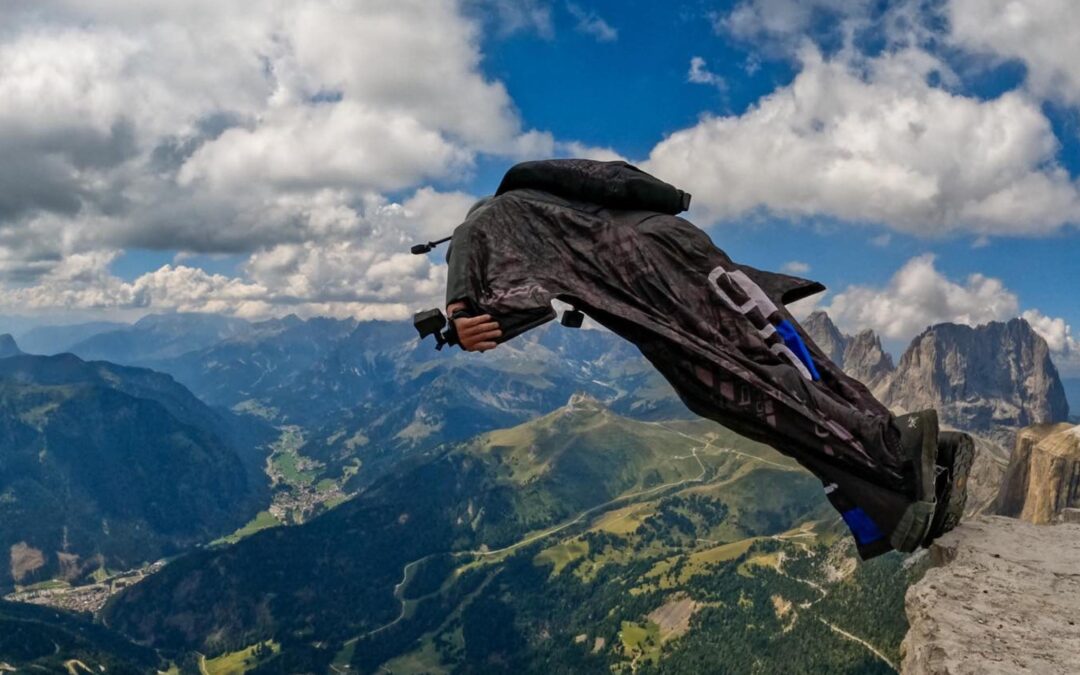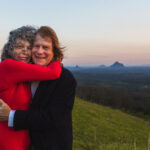During his session, one of my clients mentioned that he was told, by his guides, that he’d been given “the gift of fear.”
Fear and anxiety are often the reasons people come to see me. We don’t usually see fear as a gift, we are more likely to see it as a burden. When fear and anxiety take over our life and hold us back, not wanting to be fearful is understandable. We don’t want fear crippling us. However, I suggest we would not want to live without it either.
Whenever I think of being without fear, I think of Hansen’s Disease, also known as Leprosy. The nerves of people with this disease are so damaged, they suffer numbness in their limbs. Because they don’t feel pain, they can easily injure themselves. Their fingers, arms, legs or feet can be badly burnt or cut. Their damaged bodies show us how pain and fear can be protective.
Currently, this disease can be healed with antibiotics, but it was an awful, untreatable disease in the past when sufferers were shunned and isolated. Thinking of those people can help us be grateful for our pain and fears. Without pain and fear, we would struggle to keep ourselves safe.
I am intrigued by professional BASE jumpers. Their bravery or madness—depending on your view—isn’t shared by many of us. I know I could never do anything like that—I have never even parachuted out of a plane. But I remain curious about those who can conquer their fear and take these risks.
For BASE jumping the risk is high. It is an elite sport with relatively few participants and yet hundred participants have been killed in the last twenty years undertaking this sport. Just in the first six months of 2022, a dozen people died.
Why do they do it?
Jeb Corliss found BASE jumping when he was a troubled youth. He said, instead of self-medicating with drugs or alcohol, he is grateful he found an outlet for “all that negative energy.” In in his book, Memoirs from the Edge, he explains how it affected him:
It forced me to constantly confront gut-wrenching terror that somehow helped me work through many of my emotional problems.
Jeb is still alive at 45, but two of his buddies—experienced, confident Australians, died a year apart in 2003 and 2004 by miscalculating their ability. Jeb refuses to compete, believing that competition induces competitors to take unnecessary risks. He knows that having a healthy sense of fear is essential in life, especially when participating in a deadly sport like BASE jumping.
Jeb gave me permission to use the photograph of him, which heads this blog.
If you accept that fear can be a friend, rather than an enemy, knowing how to deal with fear, especially panic attacks, is important. You may not realise it, but even panic attacks are an evolutionary attempt to keep you safe.
Dealing with fear and panic attacks.
When you feel fearful, I suggest you feel your fear. Trying to avoid your fear might work for some, but I have found that giving it space in your body, rather than tensing up and trying to fight it, is a better approach.
Of course, you need to be brave to do this, but I noticed, when I was a psychologist, my clients discovered something surprising. Their panic attacks gradually lost their potency when they went with their emotions rather than trying to avoid them.
In a therapeutic environment, the process is called Supportive Exposure. Your therapist helps you stay with the feelings and release them.
When you are alone, you need to be your own support, reassuring yourself as you allow your emotions to temporarily take over your body. Researching Exposure Therapy beforehand can be helpful in that regard.
The process involves breathing both slowly and deeply until the energy of the fear subsides. It might get worse in the beginning with a sense of intense fear and dread. The best way to manage this is staying focussed on your slow deep breaths, stretching your lungs and releasing the air even though it hurts. Don’t fight the dread; let it be there. It will pass if you stay with it.
If triggered, the fear and panic might come back another day. The fear you feel is a protective mechanism, telling you there is a potential threat. Until it is fully resolved it can be triggered again. But many of my clients found it eventually resolves by consistently allowing it space.
Going with the fear, rather than fighting it, is a courageous act. By allowing the energy space, you are overcoming that fear and gradually dissolving any neural pathway that has formed in the brain. You might even figure out the nature of the original cause and that can help you unravel the fear and feel safe.
Seeing fear as a gift is a new way of approaching fear. We have bodies that are vulnerable, lives to live, much to learn and goals to achieve before we leave this planet. Fear has been designed to help us stay here, to be wary of danger so we can take protective action if needed. When we over-react, such as in PTSD, we can attend to our distress, seek help if necessary and work to resolve it, while still understanding the protective nature of pain and fear.
In the next blog, I will explain the exact reason why we have panic attacks. Also see Panic attacks with an unusual cause.








As a child I was very fearful at night; sometimes rolling onto the floor and sleeping under the bed so no one could find me to stab me. I do not know why I was so fearful. My last life I was actually shot in the head; so no stabbing. My parents were fed up with me wanting to sleep with them when I became so fearful. Fortunately I grew out of this. As an adult and living on my own in a remote area I never felt this fear again. I had gained faith in feeling protected.
Thank you Jeanette for sharing your experience. I am glad you eventually grew out of your fear. That can happen. I am sure all who read this are also glad you feel safe and protected. We all have a right to feel that. You have great trust and that is so important. You know you are being looked after.
We are used to the gift of Karen’s wisdom. This post in particular has raised the bar. It is full of insights, expertise and wisdom. Save it somewhere for the inevitable experience of fear – so common in life.
Thank you Joanne for your kind words and comment.
I have always had a fear of the dark – I imagine there are forces there that want to hurt me. Do you have any experience with this? Being in the dark and trying to face my fear doesn’t help.
I have had experience with people who have fears, just as yours. Hypnotherapy can take you to the source of your fear. It is not just the dark you fear but forces that you perceive as dangerous. Facing that can be a challenging idea but my clients have found that the fears are never as dangerous as they believed. Building up your inner strength and making sure you stand up for yourself and meet your needs is usually needed in those with these fears. That is a process of facing your fears and building self esteem so you refuse to let others take advantage of you regardless of the cost of doing so.